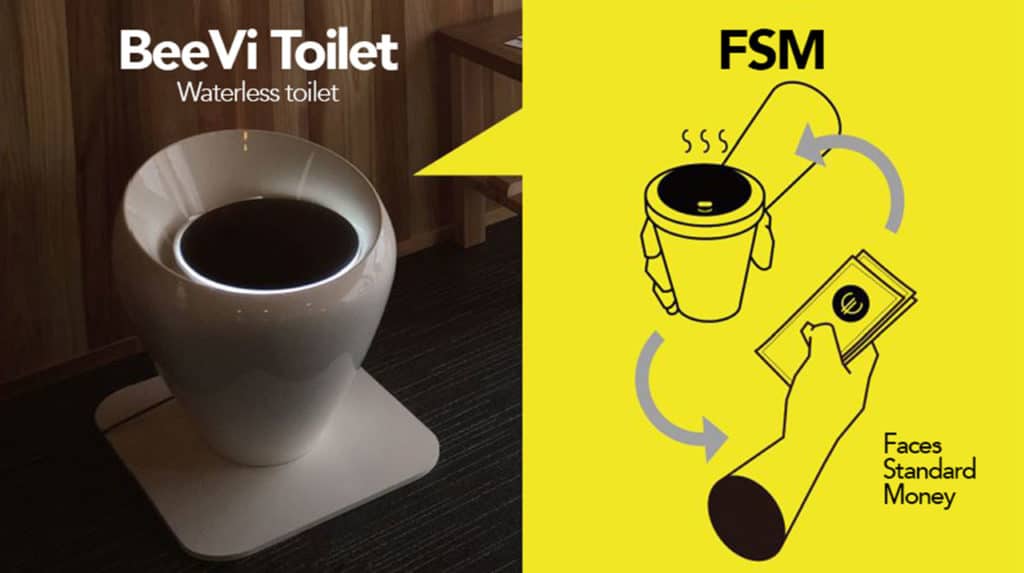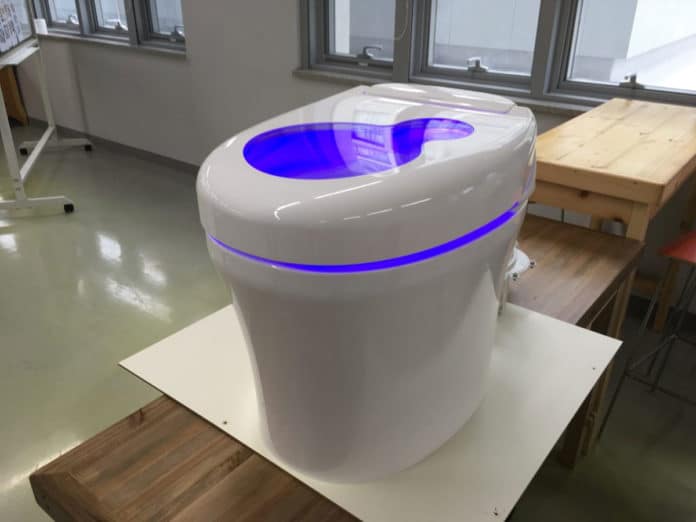Although human waste is not always considered a valuable resource at first glance, it nevertheless has significant energy and ecological potential. Your poop can make life a lot more affordable if you’re a student at the Ulsan National Institute of Science and Technology (UNIST) in South Korea.
Cho Jae-weon, an urban and environmental engineering professor at UNIST, has devised an eco-friendly toilet system that turns human waste into green energy. As a bonus incentive, each use of the toilet rewards the person with a small amount of digital currency that they can redeem for a coffee or cup of noodles on campus.
We have already seen some smart toilet examples that could replace regular medical check-ups from your doctor, but this is something even more impressive.

Most toilet models flush away waste with gallons of water. Instead, the BeeVi toilet – a portmanteau of the words’ bee’ and ‘vision’ – use a vacuum pump to suck shit into an underground bioreactor, which means it uses less water. The energy-producing toilet system is much smaller than the existing flushable toilets, as it treats human excrement without using water.
The system utilizes a natural biological process to break down human waste into a dehydrated odorless compost-like material. Once these powdered feces are transferred to the Microbial Energy Production system, they can later be converted to methane, which becomes a source of energy for the building, powering a gas stove, hot-water boiler, and solid oxide fuel cell.
“If we think out of the box, faeces has precious value to make energy and manure. I have put this value into ecological circulation,” the inventor Cho Jae-weon said.
According to Cho, the eco-friendly toilet could turn about 500 grams of solid human waste, the average amount a human poops in a day, into 50 liters of methane gas. This means that the system can generate half a kilowatt-hour of electricity, enough to power an electric car for three-quarters of a mile. At a university in South Korea, human waste is being used to help power a building.
And because we are in a time when people’s enthusiasm for cryptocurrency is high, Cho has come up with a virtual currency called Ggool, or “honey” in Korean. Each person using the eco-friendly toilet earns 10 Ggool a day, which can be used to buy stuff on the university’s campus, such as freshly brewed coffee, instant cup noodles, fruits, and even books. The students can pick up the products they want at a special Ggool market and scan a QR code to pay for their goods.
“I had only ever thought that feces are dirty, but now it is a treasure of great value to me,” a postgraduate student Heo Hui-jin purchasing items at the Ggool market told Reuters. “I even talk about feces during mealtimes to think about buying any book I want.“
